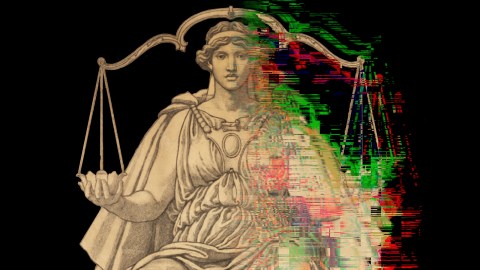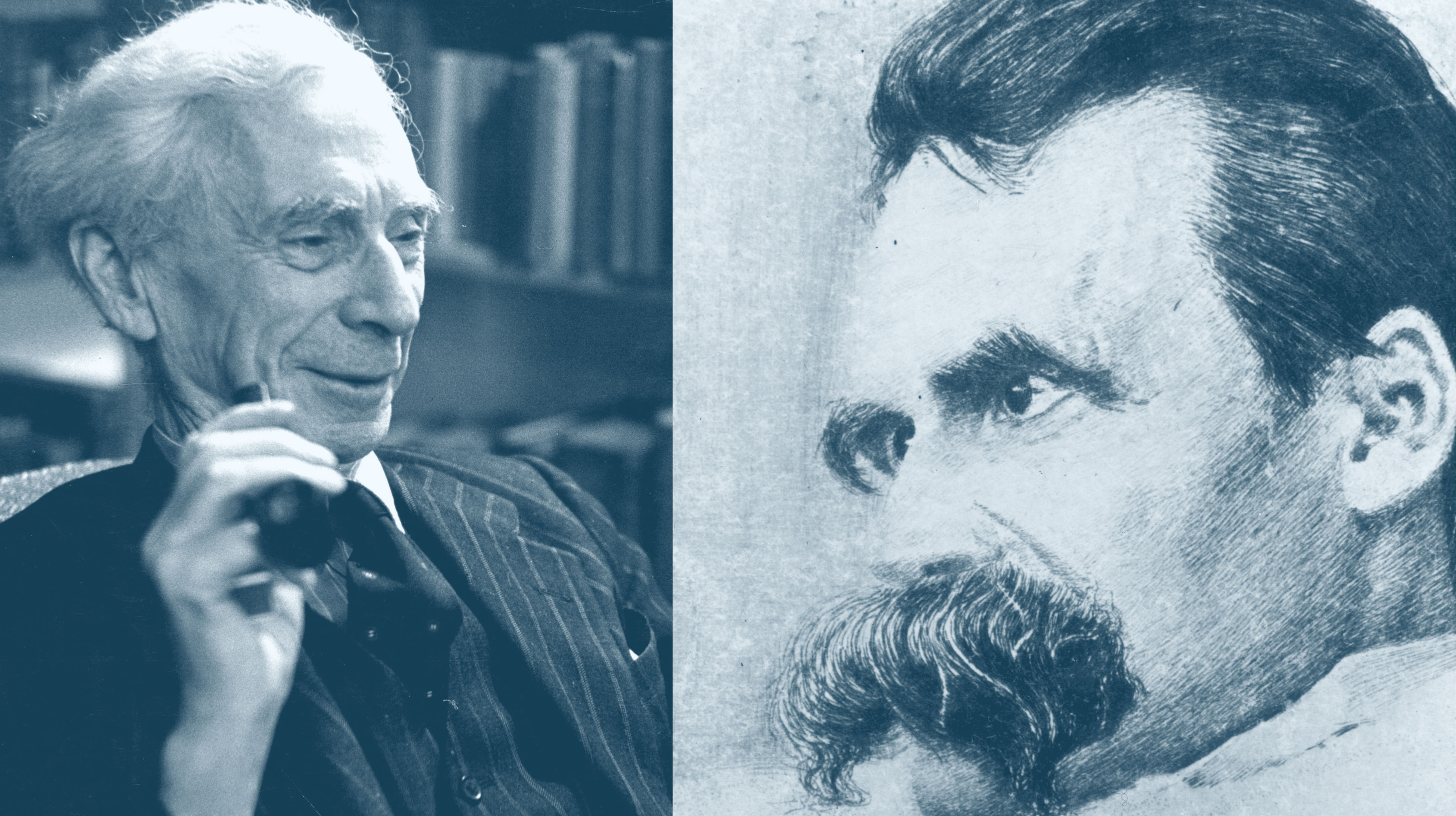Why a strict sense of justice hinders progress toward a fairer society

- In Christian theology, justice is one of the four cardinal virtues.
- Justice may be necessary for any society, but it must be tempered by other moral forces such as mercy, forgiveness, or nonviolence, according to Robert Barron, who serves as bishop of the Diocese of Winona-Rochester.
- Left unchecked, the pursuit of justice can make retribution the default response, encouraging an "eye-for-an-eye" mentality.
Justice means to render each their due. Along with temperance, fortitude, and prudence, it is one of the four cardinal virtues. These virtues, according to Catholic theology, are believed to help people build “the good life” for themselves. Ironically, however, nowadays there seems to be a hyper-stress on justice.
The problem with this overfocus? Without justice being tempered by something such as mercy, forgiveness, or nonviolence, retribution becomes the default response and an “eye for an eye” mentality may leave the world blind. Indeed, rather than improving life, an obsession with just justice—history luridly shows us—turns our interplay with one another into a slaughter bench.
“I think Jesus’s great public teaching is the teaching about turning the other cheek and the love of enemies,” Bishop Robert Barron, of the Archdiocese of Los Angeles, tells Freethink. “In other words, stand your ground and signal back to him that you refuse to cooperate with the world he’s living in. By turning the other cheek, you’re saying, ‘I’m not going to let you strike me that way, again.’”
In doing so, we act as a sort of mirror of the other person’s behavior—and we give them a chance to reflect. This nonviolent plan of attack doesn’t destroy the other person, and it allows for the ultimate victory: the person’s shift in attitude; in actions. In our everyday lives, though, how do we begin to “turn the other cheek” in our own conflicts? We start by practicing the simplest acts of love.
Barron adds: “Love is not a feeling. Love is an act of will. ‘To love,’ Aquinas says, ‘is to will the good of the other.’”
The power of tempered justice
Perhaps one of the best modern examples of bringing about cultural justice was that of the very public work performed by Dr. Martin Luther King, Jr., whose nonviolent demonstrations not only prompted swift social change, but did so through mercy and fortitude, inspiring further support. “Darkness cannot drive out darkness, only light can do that,” Dr. King once said. “Hate cannot drive out hate, only love can do that.”
Indeed, recent research—from studies performed at Baylor University—supports the idea that at least refraining from negative behaviors, such as arguing or emotionally withdrawing, can actually do much to save our relationships during contentious times. It isn’t just performing the act of kindness that matters, but also not returning bad behaviors that helps us build lasting relationships, through thick and thin, with others.
In a way, because people are not perfect, not practicing strict justice is essential for us to form—and maintain—relationships. But can this seemingly passive response to “evil” really change situations for the better? “It’s meant to be a bold and courageous standing of one’s ground,” Bishop says. “It’s trying to put a wrench in the works of evil. . . but never in a way that destroys the evil person. It’s meant to liberate.”
In a sense, kindness heals the injuries caused by past bad behaviors. It may sound like spiritual hooey, but the effects of “love” may be real and far-ranging. Recent research suggests, for instance, that loving relationships can even protect us against cancer. Admittedly, the experts aren’t exactly sure how. The fact the glue between pair-bonded mice helped them survive—that it was something that seemed measurable, an actual phenomenon—was itself as mystifying as it was illuminating.
Unfortunately, doctors cannot prescribe love. Nor can it be bottled up and sold like your favorite sports drink. It is something, however, that we can willfully practice in our everyday lives. Rather than hyper-stressing about justice, we can live—graciously—and let live. In doing so, we may unwittingly initiate a series of events whose positive endgame we could not previously have imagined, when we were dimly obsessed about returning the evil for evil.
Rather than strict justice, a tempered striving for fairness—for equity—could help us, indeed, find “the good life.” How? By staying in good relationships with others. In life’s unpredictable moments, our connections with others not only allows us to be more resilient when hard times come—and they will—but also provides us with the comfort of knowing others have our back. Treating others justly also prompts them to behave similarly toward us.
Indeed, according to one study published in Social Justice Research, students who believed they live in a just world were more likely to act justly. That is, the study’s authors found that such a belief reduced the instances of cheating in college classes. Imagine what such a belief might do outside of school. Indeed, although we’ve all heard the saying that “Life itself isn’t fair”—usually as a maxim to roll with the punches—a belief in just systems elevates our behavior. It prompts us to play fairly.
It’s often said that we live in a dog-eat-dog world. This may be true. If so, however, then this state-of-affairs provides an incredible backdrop for acts of love to shine through. Particularly in the eyes of those who may have mistreated us. Harsh realities make kindness—not just fairness—ever more compelling. And such persuasion may turn foes to friends. Stranger things have happened.





